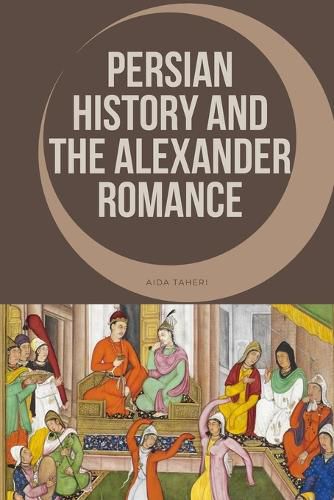Readings Newsletter
Become a Readings Member to make your shopping experience even easier.
Sign in or sign up for free!
You’re not far away from qualifying for FREE standard shipping within Australia
You’ve qualified for FREE standard shipping within Australia
The cart is loading…






This title is printed to order. This book may have been self-published. If so, we cannot guarantee the quality of the content. In the main most books will have gone through the editing process however some may not. We therefore suggest that you be aware of this before ordering this book. If in doubt check either the author or publisher’s details as we are unable to accept any returns unless they are faulty. Please contact us if you have any questions.
This book aims to explore how the Alexander Romance entered the Persian literary??? tradition and to understand precisely its influence. The main question addressed is whether the Alexander Romance was part of the pre-Islamic Persian tradition and, if so, what its key characteristics were. Because of the dearth of pre-Islamic Persian sources, this thesis is necessarily mostly based on early Arabic and Persian sources written in theearly Islamic period, some of which were derived from pre-Islamic traditions. Aside from the Shahnama of Firdawsi, the Arabic histories (?abari, Dinawari, the anonymous Nihayat al-'arab, the Ghurar al-Sayr of Tha?alibi) included Alexander in their chapters on the Kayanid kings, presenting him as the half-brother of Dara (Darius III). My examination of these histories largely focuses on their understanding of the Persian descent of Alexander, which is derived from the Sasanian Khudaynamag. Most scholars have looked askance at the presence of a positive perspective on Alexander in the Persian world because the Zoroastrian tradition usually presented him as a cursed figure and one of Persia's worst enemies. Perhaps one of the original contributions of this thesis will thus be its demonstration of the existence of a very positive view of Alexander in the classical Arabic and Persian sources that is not just the result of biases derived from the Islamic era, but which also reflects the viewpoint of numerous pre-Islamic Persian sources on Alexander.
$9.00 standard shipping within Australia
FREE standard shipping within Australia for orders over $100.00
Express & International shipping calculated at checkout
This title is printed to order. This book may have been self-published. If so, we cannot guarantee the quality of the content. In the main most books will have gone through the editing process however some may not. We therefore suggest that you be aware of this before ordering this book. If in doubt check either the author or publisher’s details as we are unable to accept any returns unless they are faulty. Please contact us if you have any questions.
This book aims to explore how the Alexander Romance entered the Persian literary??? tradition and to understand precisely its influence. The main question addressed is whether the Alexander Romance was part of the pre-Islamic Persian tradition and, if so, what its key characteristics were. Because of the dearth of pre-Islamic Persian sources, this thesis is necessarily mostly based on early Arabic and Persian sources written in theearly Islamic period, some of which were derived from pre-Islamic traditions. Aside from the Shahnama of Firdawsi, the Arabic histories (?abari, Dinawari, the anonymous Nihayat al-'arab, the Ghurar al-Sayr of Tha?alibi) included Alexander in their chapters on the Kayanid kings, presenting him as the half-brother of Dara (Darius III). My examination of these histories largely focuses on their understanding of the Persian descent of Alexander, which is derived from the Sasanian Khudaynamag. Most scholars have looked askance at the presence of a positive perspective on Alexander in the Persian world because the Zoroastrian tradition usually presented him as a cursed figure and one of Persia's worst enemies. Perhaps one of the original contributions of this thesis will thus be its demonstration of the existence of a very positive view of Alexander in the classical Arabic and Persian sources that is not just the result of biases derived from the Islamic era, but which also reflects the viewpoint of numerous pre-Islamic Persian sources on Alexander.